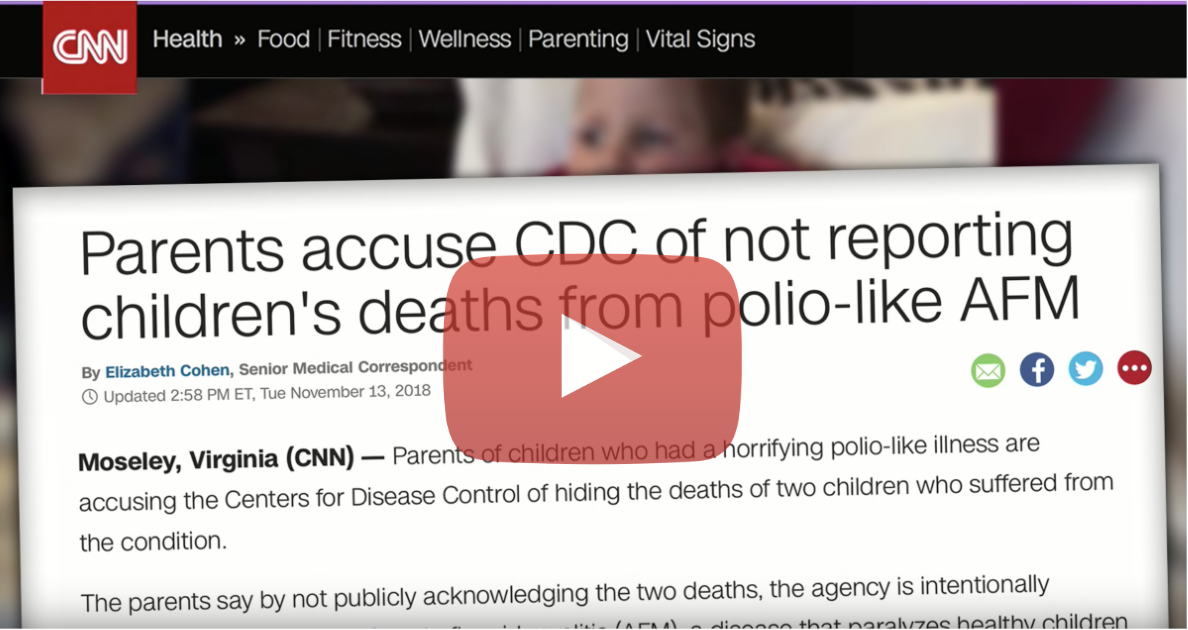11 New Cases of AFM Polio-Like Illness, CDC Looking For Answers
Updated
“I urge physicians to look for symptoms and report suspected cases so that we can accelerate efforts to address this serious illness,” CDC Director Robert Redfield, MD, said in a news release. Attempting to get out front of 2019’s new season of Acute Flaccid Myelitis (AFM) after the CDC’s publicly embarrassing lack of effort in previous years. Currently there have been 11 cases in eight states. After well-deserved criticism for its lackluster attempts last year, the CDC escalated its response to the illness, more than doubling the number of staffers working on AFM late last year.
The previous year saw a record 233 cases of AFM mostly appearing in children. Concerning the beginning of this year’s new season, CNN recently reported:
“According to the new report, doctors collected specimens between two and seven days after limb weakness started, but it took weeks for cases to be reported to the CDC.”This delay hampers our ability to understand the causes of AFM,” Dr. Tom Clark, deputy director of the CDC’s Division of Viral Diseases, told reporters Tuesday. “We believe that recognizing AFM early is critical and can lead to better patient management.“
For the public, who wants to have faith and trust that the CDC is doing its job, the last five years have been a frustrating letdown. In an October 2018 tele-briefing with the Director of CDC’s National Center for Immunization and Respiratory Diseases Nancy Messonnier, she admitted “there is a lot we don’t know about AFM” and continued saying “we haven’t been able to identify the causes of this mystery illness.” The CDC has been openly criticized by parents, doctors and even its own AFM advisors around the country for mismanaging several aspects of its response to AFM over the last four years.
Last year’s AFM outbreak saw medical professionals break rank to join frustrated parents by openly criticizing the CDC. Dr. Keith Van Haren assistant professor of neurology at the Stanford University School of Medicine and a CDC advisor told CNN recently, “We feel like we’re not being listened to…It shouldn’t be taking this long to confirm these cases”.
While during the same time another CDC advisor, Dr. Kenneth Tyler, a professor and chair at the Department of Neurology at the University of Colorado School of Medicine stated, “This is the CDC’s job. This is what they’re supposed to do well. And it’s a source of frustration to many of us that they’re apparently not doing these things,”
In past years, the CDC has also been notoriously slow in guiding pediatricians and emergency room physicians on how to diagnose and treat the children. In a possible AMF situation where every second counts, the CDC’s apathy has mostly likely amplified the past outbreaks. Emergency rooms are still frequency sending children home when they have signs of AFM blaming the symptoms on other causes.












